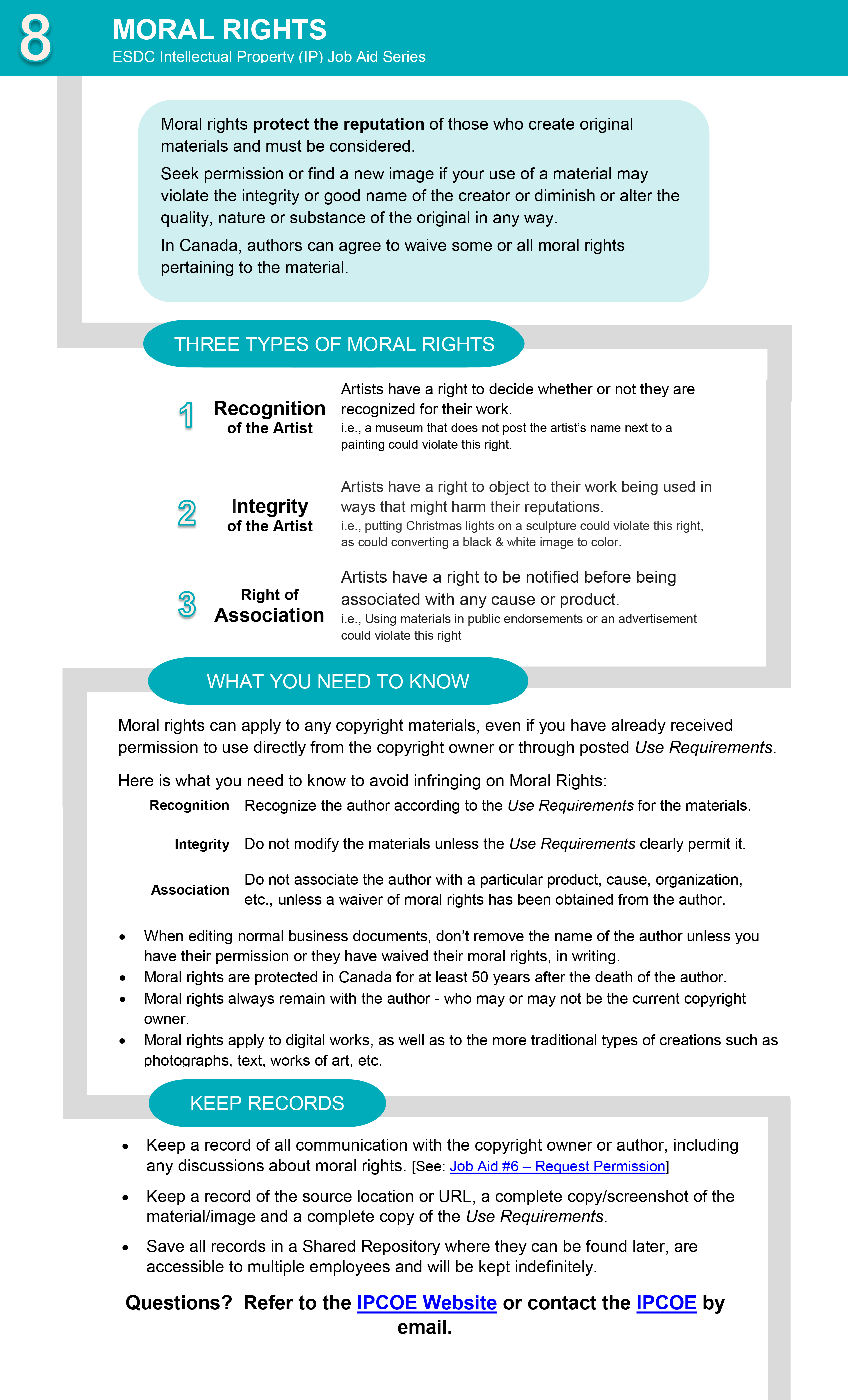Moral Rights
ESDC Intellectual Property (IP) Job Aid Series
ESDC Intellectual Property (IP) Job Aid Series
Long Description
Moral rights protect the reputation of those who create original materials and must be considered.
Seek permission or find a new image if your use of a material may violate the integrity or good name of the creator or diminish or alter the quality, nature or substance of the original in any way.
In Canada, authors can agree to waive some or all moral rights pertaining to the material.
Three types of moral rights
- Recognition of the Artist
- Artists have a right to decide whether or not they are recognized for their work.
i.e., a museum that does not post the artist's name next to a painting could violate this right. - Integrity of the Artist
- Artists have a right to object to their work being used in ways that might harm their reputations.
i.e., putting Christmas lights on a sculpture could violate this right, as could converting a black & white image to color. - Right of Association
- Artists have a right to be notified before being associated with any cause or product.
i.e., Using materials in public endorsements or an advertisement could violate this right
What You Need To Know
Moral rights can apply to any copyright materials, even if you have already received permission to use directly from the copyright owner or through posted Use Requirements.
Here is what you need to know to avoid infringing on Moral Rights:
- Recognition
- Recognize the author according to the Use Requirements for the materials.
- Integrity
- Do not modify the materials unless the Use Requirements clearly permit it.
- Association
- Do not associate the author with a particular product, cause, organization, etc., unless a waiver of moral rights has been obtained from the author.
- When editing normal business documents, don't remove the name of the author unless you have their permission or they have waived their moral rights, in writing.
- Moral rights are protected in Canada for at least 50 years after the death of the author.
- Moral rights always remain with the author - who may or may not be the current copyright owner.
- Moral rights apply to digital works, as well as to the more traditional types of creations such as photographs, text, works of art, etc.
Keep Records
- Keep a record of all communication with the copyright owner or author, including any discussions about moral rights. [See: Job Aid – Requesting Permission to Use IP]
- Keep a record of the source location or URL, a complete copy/screenshot of the material/image and a complete copy of the Use Requirements.
- Save all records in a Shared Repository where they can be found later, are accessible to multiple employees and will be kept indefinitely.
Questions?
Refer to the Intellectual Property Centre of Excellence (IPCOE) or contact the IPCOE by e-mail at: NC-ASSETS-IP-POLICY-POLITIQUES-BIENS-PI-GD.
